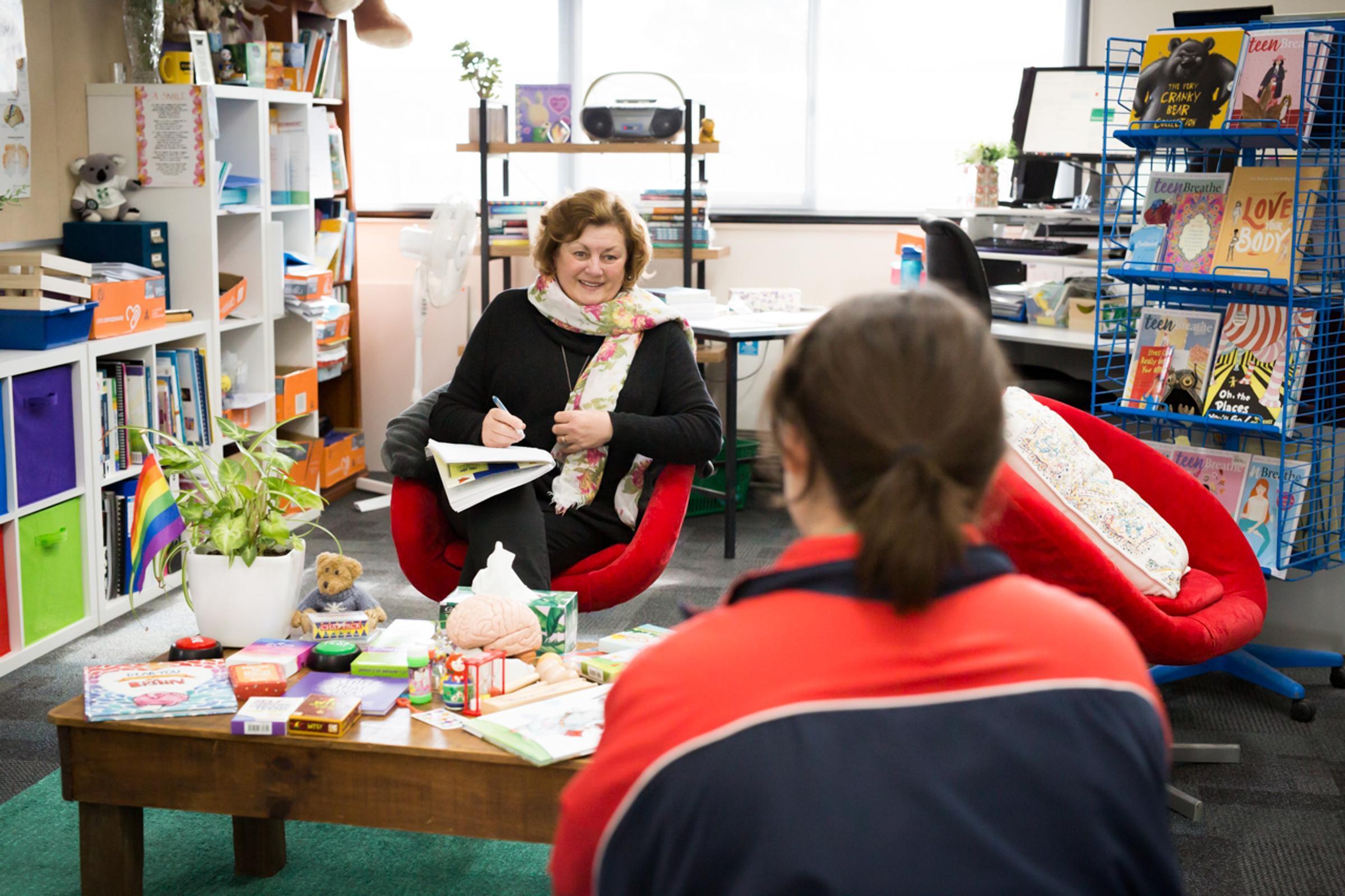From the Counsellor

We can change our neurochemistry … to a point
'Work Ready, Life Ready' Year Eleven Camfield
In WRLR classes with Year Elevens each Friday, you may recall that we cover a series of significant topics including “being our best selves”, teamwork, physical wellbeing as a platform for mental health and self-care. Last week with mighty Camfield House, we embarked on the importance of insight around our neurochemistry – e.g. If we are not sleeping well over time, it might be that our melatonin is being trumped by too much cortisol, or if we are feeling grumpy more often than not, our serotonin levels might be low, or if we are feeling bored and unmotivated in class, we may be experiencing a contextual lack of dopamine, which is necessary for learning. Of course, we are not in the business of diagnosing – however, having some knowledge and discussion around these neurochemicals (dopamine, serotonin, melatonin, cortisol, adrenaline, oxytocin) can be really useful as we become more self-managing and perhaps privately curious in the senior years.
Karen Young from Hey Sigmund
On Monday night at the Town Hall, some of the GSG community were extremely fortunate to be introduced face to face to Karen Young from Hey Sigmund at an event fostered by Parenting Connection WA. Karen’s work and her training are informed by the research of Eli Lebowitz and his team at Yale University. I am currently doing the training From Anxious to Brave – which I heartily recommend: Anxious to Brave: Strengthening Children and Teens Against Anxiety. An online course for parents. - Hey Sigmund
While this comprises much of my “bread and butter” daily work, and I am thoroughly up to date with research, I am learning a lot as I’m engaged by Karen’s warm, humble yet authoritative presence. She so competently guides us through the neurochemistry of anxiety and highlights how we can work with our children and adolescents to make the tough choices, in service to our quality of life. I love this metaphor of Karen’s: that our go-to, habituated, spontaneous reaction to an anxiety trigger can be analogous to a well-worn, clear, familiar track through a gnarly bush space which we unthinkingly follow – as we are so used to this behaviour response.
However, Karen posits that we need to actually get off that “safe, familiar (neural) pathway” and bush bash. What? Yes, Karen says we need to help our loved young ones try new methods of response as we learn to choose different ways to manage ourselves/our choices after experiencing a trigger to our big feelings. Karen reminds us that we are all human and will stumble and lapse, which is typical as we try to learn new habits; that we must also expect an enormous pull towards the old habits. Why? Because it’s typical to be plagued by feelings of awkwardness and clumsiness, and fear and confusion, when we try new ways. But – we must persevere – as after all we are changing our brain chemistry – no easy feat – in service to building a more enjoyable and meaningful life.
Here is a podcast which explains this further: Moms of Tweens and Teens (scribd.com)
Teens, Consent and Romantic Relationships
Lastly, so many incredibly tempting courses and professional learning opportunities come my way via my numerous subscriptions and memberships. One which I cannot recommend highly enough is anything which Michelle Mitchell promotes or participates in. Teens, consent and romantic relationships | Michelle Mitchell looks fantastic and is well worth the $25 cost, after which you have access to forever. Michelle’s co-honcho is the much-lauded Dr Justin Coulson (DR JUSTIN COULSON - Happy Families) whom I’ve spruiked in this column previously. Like Karen Young, Michelle Mitchell is a well-respected leader, co-presenter and writer of many sources around adolescence.
Yours in mental health,
Ms Sheryl Moncur | Counsellor, Teacher
